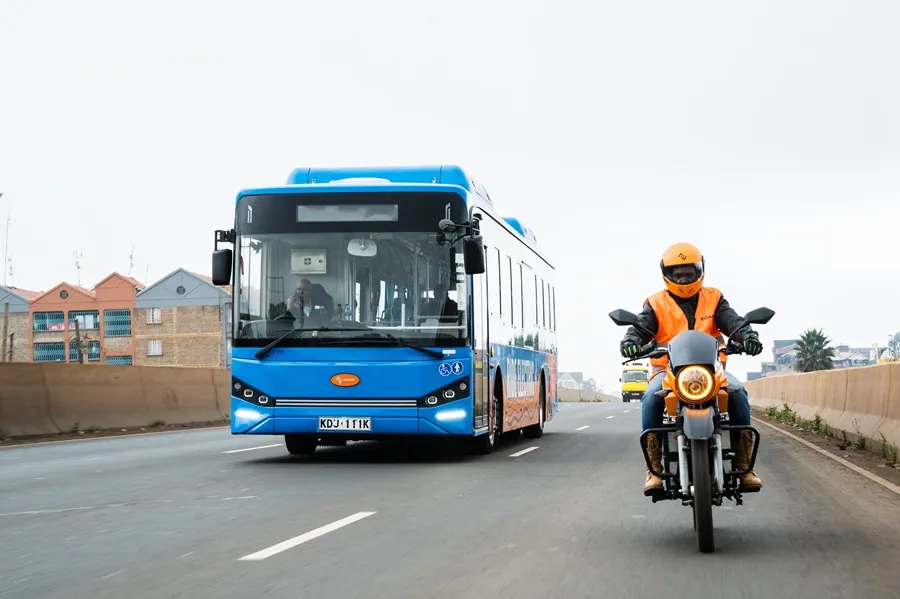- Sector : Urban Development Solutions
- Location : Kenya

Overview
The Subnational Climate Fund (SCF) is providing technical assistance to a company that supports the scale-up of locally produced electric motorcycles and buses in Kenya. The initiative addresses the country’s reliance on polluting petrol vehicles by offering affordable, climate-friendly transport alternatives tailored to African road and market conditions.
Through investments in local frame production, solar-powered battery-swapping infrastructure, and workforce training, the project reduces emissions, lowers costs for drivers, and builds Kenya’s green industrial capacity. A new EV factory in Nairobi—East Africa’s largest—anchors the initiative with potential to produce over 100,000 units annually.
The Challenge
Kenya’s transport sector is dominated by imported fuel-powered motorcycles, especially in the boda boda (motorcycle taxi) industry, which sustains over 5 million livelihoods according to the Motorcycle Assemblers Association of Kenya (MAAK). These vehicles are expensive to operate, pollute urban air, and contribute significantly to national emissions. Limited charging infrastructure and heavy dependence on imported parts constrain both affordability and local job creation.
SCF’s Involvement – Technical Assistance
The Subnational Climate Fund is providing comprehensive technical assistance to support the establishment of advanced electric vehicle manufacturing capabilities in East Africa through two sequential feasibility studies.
Phase 1: Manufacturing Readiness & Investment Preparation
The first feasibility package supports project preparation for full-scale localized manufacturing and Industry 4.0 adaptation, strengthening investment-readiness, supply chain resilience, ESG compliance, and workforce development—key pillars for long-term viability and impact. Each component addresses a critical operational or strategic bottleneck:
- Detailed engineering and robotic welding cell design
- Local supply chain qualification and ISO-aligned QA/QC standards
- Environmental and social compliance documentation aligned with NEMA and IFC Performance Standards
- Workforce training curriculum for robotic welding, digital quality control, and safety protocols
- Independent financial modeling and capital expenditure validation with stress-tested projections
- Digital twin and production data architecture for workflow optimization, traceability, and predictive maintenance
Phase 2: Market Validation & Commercial Viability Assessment
The second study assesses present and future demand for electric motorcycles in East Africa, evaluating commercial viability through market share analysis, competitive benchmarking against ICE and EV alternatives, and adoption pathway projections over 24-month and longer-term horizons:
- Detailed market projections and sizing analysis
- Assessment of key demand drivers and barriers to adoption
- Competitive positioning analysis against regional market participants
- Policy and regulatory environment review across East African markets
This integrated programme de-risks investment by validating both manufacturing feasibility and market opportunity while building essential local technical capacity.
Our Target Impact
The project aims to expand equitable access to clean mobility while strengthening Kenya’s manufacturing sector. It is expected to contribute to climate goals, job creation, and energy independence by reducing fuel imports and building a localized electric vehicle value chain.
-

SDG 13 Climate Action
Expected to avoid up to 2.2 million tons of CO₂ by 2030 through clean energy vehicles and local production.
-

SDG 8 Decent Work and Economic Growth
The project is expected to create 935 direct employments by 2030. Many indirect jobs will also be created across the value chain.
-

SDG 5 Gender Equality
The project aims to have a gender action plan in accordance with SCF policy, including actions to promote equal employment and decision-making roles for women.


